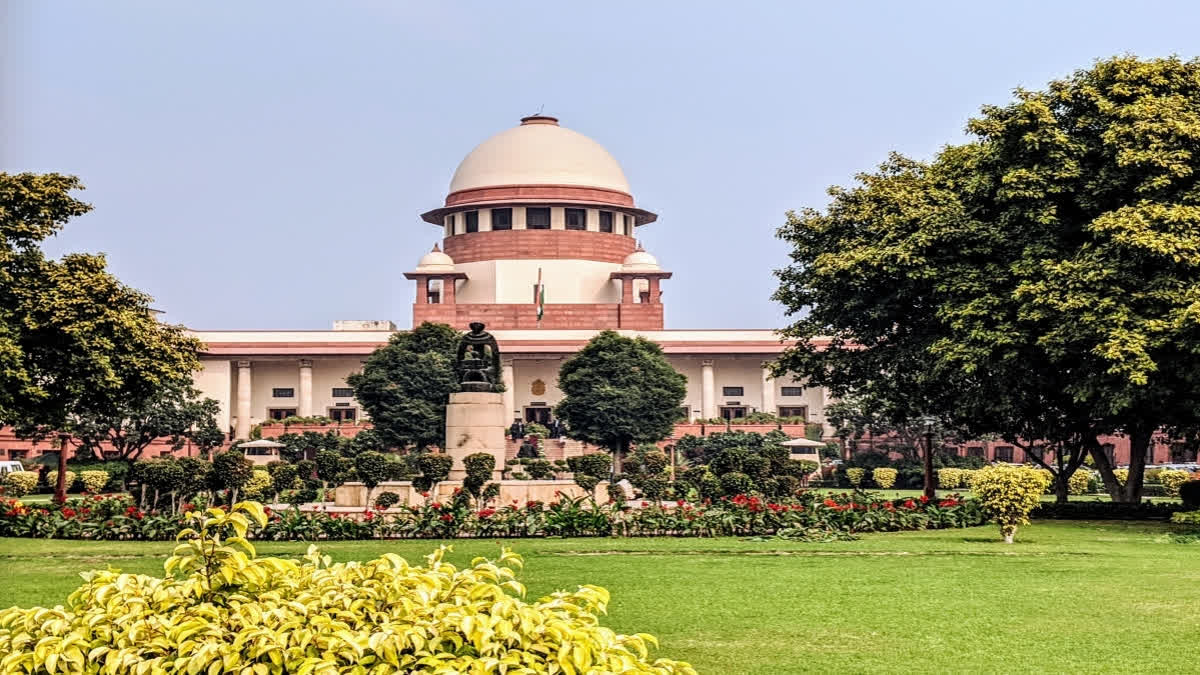New Delhi:The Supreme Court on Tuesday, in a verdict which potentially has a significant impact on the legal profession, held that legal representation for a fee cannot be classified as a "service" under the Consumer Protection Act, 1986. The top court set aside a 2007 judgement by the consumer commission, which held that advocates do come under the purview of the Act and can be dragged to a consumer court by their clients for deficiency in service.
The lawyers’, assailing the commission's order, stressed that unlike the medical profession, where scientific standards exist to decide the standard of care, there is no universal standard of care or objective test that exists or can be prescribed as the threshold in the case of legal profession to adjudicate upon the question of abdication of duty to care.
A bench comprising Justices Bela M Trivedi and Pankaj Mithal said: "A service hired or availed of an advocate is a service under 'a contract of personal service,' and therefore would fall within the exclusionary part of the definition of 'Service' contained in Section 2 (42) of the CP Act 2019".
Various lawyers’ bodies, including the Bar Council of India, assailed the commission's judgement in the top court. A battery of senior advocates argued before the apex court: Narender Hooda, Guru Krishna Kumar, Manoj Swarup, Manan Mishra, Jaideep Gupta, Shekhar Naphade, and Vikas Singh. Below are key arguments made by lawyers' before the top court:
- The Advocates Act, 1961 is a law dealing exclusively with the legal profession which provides a robust mechanism laying down professional standards for compliance and for determining professional misconduct.
- The legal profession is a noble profession and not a business or trade. It is an extension of the system of justice, and the success of the judicial process depends on the independence of the Bar. Hence, its autonomy is needed to preserve democracy and to keep the judiciary strong.
- A unique feature which distinguishes an advocate from other professionals is that an advocate has a duty to the court and his peers, in addition to his duty to the client. He is not merely a mouthpiece but he has to exercise his own judgement for upholding the interest of his client by all fair, legal and reasonable means, and by being respectful to the court.
- The Bar Council of India and state bar councils are invested with the disciplinary powers. An error of judgement or mere negligence may not be a professional misconduct.
- The Advocates Act being special law would prevail over the CP Act so far as the conduct of Advocates are concerned.
- The legal professionals in the United Kingdom can be sued for negligence by a way of regular civil action, however they would not be liable under the law dealing with consumer rights for trade/commercial activities.
- Allowing consumer protection law to apply to the advocates would open floodgates of unnecessary litigations and it would not be in the larger public interest to do so.
- Unlike many other professions where practitioners may have a higher degree of control over their surroundings, the lawyers frequently navigate through complex legal landscapes shaped by diverse factors.
- Legal disputes frequently involve multiple parties with conflicting interests, further complicating the matters. Unlike some other professions where problems may have more straightforward solutions, the lawyers often face ambiguity and uncertainty in their work, making control over outcomes elusive.
- The Bar Council of India Rules prescribe at least four sets of duty that a lawyer has to oblige, viz., Duty to the Court, Duty to the Client, Duty to Opponent and Duty to Colleagues, in no particular order. These duties are sometimes conflicting in nature, however whenever a conflict arises, the duty to court is considered to be paramount.
- Unlike the medical profession, where scientific standards exist to decide the standard of care, there is no universal standard of care or objective test that exists or can be prescribed as the threshold in the case of legal profession to adjudicate upon the question of abdication of duty to care.
Assisting the bench as amicus curiae, senior advocate V Giri submitted that it is open to a party to plead and appear in person in the court, however when he executes a vakalatnama, he chooses to engage an advocate as his agent, and the acts and statements of the advocate, in the course of his duties in the matter, are like the acts and statements of the principal i.e., the client himself.
"Such relationship cannot be equated to that of a 'service provider' and a 'consumer' as contemplated in the CP Act”, said Giri.
Read More
- SC Rules Lawyers Can’t Be Sued For Poor Service Before Consumer Courts
- '55 per Cent of the Vehicles, as per a Survey, Are Uninsured': SC Told
- Review Petition in SC in 100% Cross-Verification of EVM Data with VVPAT
